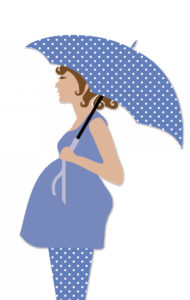
Folic acid, during pregnancy is a bit of a double edged sword, it seems.
While folic acid supplements are prescribed early in pregnancy to prevent neural tube defects in the baby, but continuing that throughout the entire period of pregnancy may increase the risk of allergies in some babies, researchers from the University of Adelaide have found.

Folic acid, a type of B vitamin, is widely used to prevent neural tube defects in the fetus, and to aid in the development of the central nervous system. The neural tube develops in the first month of pregnancy. Common food items that contain folic acid are spinach, citrus fruits and beans.
“Taking a folic acid supplement during the first trimester of pregnancy is important to reduce the risk of neural tube defects. However, continued supplementation with folic acid into the later stage of pregnancy doesn’t reduce that risk, and there’s growing evidence that this may increase the risk of allergies in offspring,” says Dr Kathy Gatford from the University of Adelaide’s Robinson Research Institute.

Allergies are one of the main causes of non-communicable diseases in the world and are estimated to affect 30-40% of the world’s population. Susceptibility to these diseases after birth is partly determined by an individual’s early life environment. Previous research has also shown that a complication of pregnancy known as intrauterine growth restriction (IUGR) – a form of growth restriction in the womb often resulting in lower birth weight – may in fact have a protective effect against childhood allergies.
In studies of sheep born from normal or growth-restricted pregnancies, Dr Gatford and colleagues measured skin reactions to two common allergens: dust mites and egg whites.
“Sheep from growth-restricted pregnancies were less likely to have allergic reactions to egg white protein than those born to normal pregnancies. Importantly, if the sheep with growth restricted pregnancies were fed supplements containing folic acid in late pregnancy, their offspring had similar rates of allergic reactions as control progeny. Our findings suggest that folic acid supplementation partially reduced the protection that has previously been seen in pregnancies with restricted growth,” Dr Gatford says.












